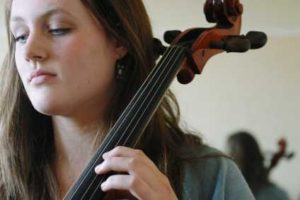 The coronavirus is forcing us to practice social distancing and self-isolation. As I joked on Twitter the other day, musicians, and especially pianists, have been self-isolating for years!
The coronavirus is forcing us to practice social distancing and self-isolation. As I joked on Twitter the other day, musicians, and especially pianists, have been self-isolating for years!
The musician’s life is, by necessity, lonely for in that sequestered time notes are learnt, practised and finessed ready for the concert platform. However, despite the need for frequent sequestration to get the work done, regular interaction with colleagues and students alleviates the loneliness and reminds us of the life beyond the keyboard and the importance of forging musical partnerships, professionally and socially. And in concert-giving, there is also the important connection and interaction with audiences.
With coronavirus sweeping the world, the concert halls and conservatoires are closed and we are being told to exercise social distancing and self-isolation to protect ourselves and our families and friends from this virus. Around my social networks in the days since the UK government ordered that we “stay at home”, many of my musician friends and colleagues have been posting details of how they intended to cope with this new way of making and sharing music. Some are excited about the prospect of weeks, maybe months, of enforced isolation as an opportunity to learn new repertoire, ready for when the concert halls and venues reopen and the music can be shared with live audiences once more. Others are exploring ways to give concerts online via platforms like YouTube. Unfortunately, neither of these activities make money and the sad truth of the musician’s working life is that it is very fragile. Most musicians are self-employed and many live almost hand-to-mouth, meagre concert fees (only the most internally-renowned musicians can command large fees) often supplemented by teaching which offers regular income.
Without concert bookings, many musicians feel marooned as the main focus of their daily lives is removed in one fell swoop. It’s all very well saying you’re going to learn the Saint-Saëns Piano Concerto or the complete Liszt Transcendental Etudes, but without concert bookings it’s very hard to feel motivated.
“You’ve got more time to practice now!” people outside the profession might declare, and while this may be true, it’s not very helpful as musicians face the prospect of months without work, no fees, and the attendant anxiety which this brings. And without concerts, the professional musician loses a significant motivation to keep working.
I think it’s important to exercise some self-care and not feel guilty about not working (by which I mean practising) as much during these strange, surreal and uncertain days, and especially not to compare oneself to others who may be busy with livesteam concerts, videocasting and daily broadcasts of Bach…. This time may serve to remind musicians how their lives are often lived at full tilt, and so perhaps this is an opportunity to slow down, pause and reflect, and, above all, enjoy our music.
Massenet: Thais, Act II: Meditation (Takako Nishizaki, violin; Jenő Jandó, piano)


